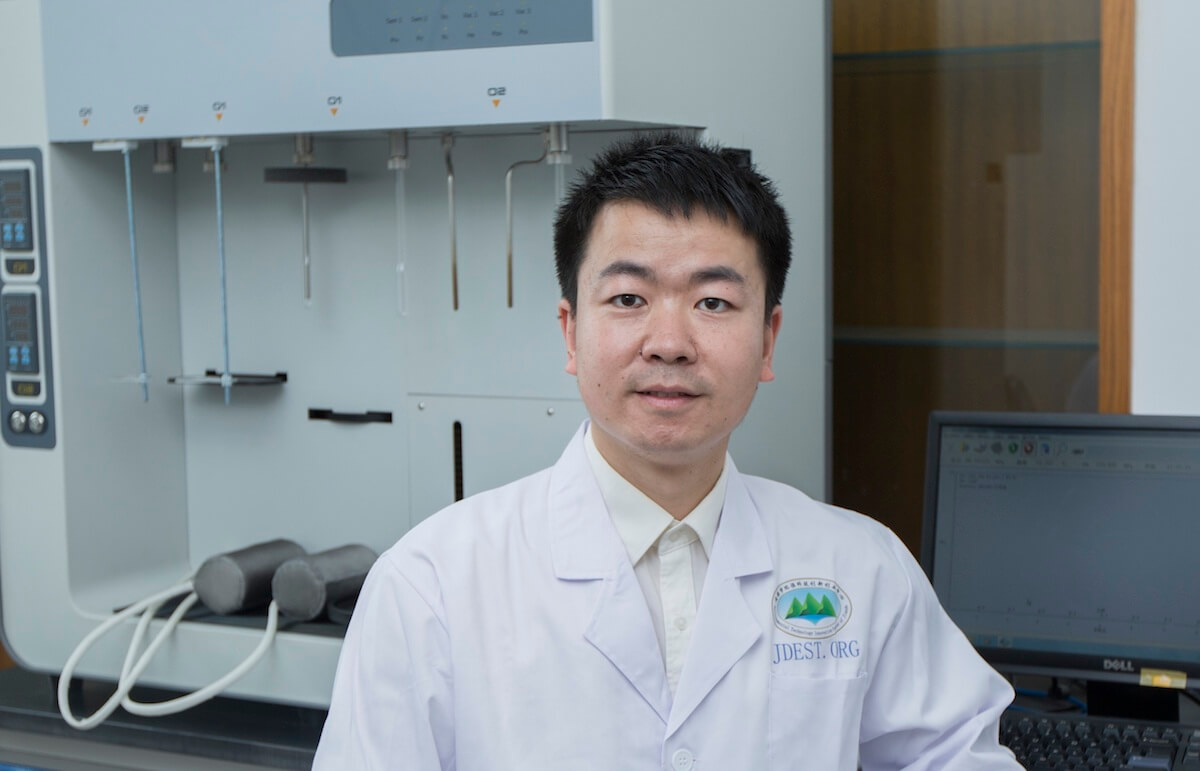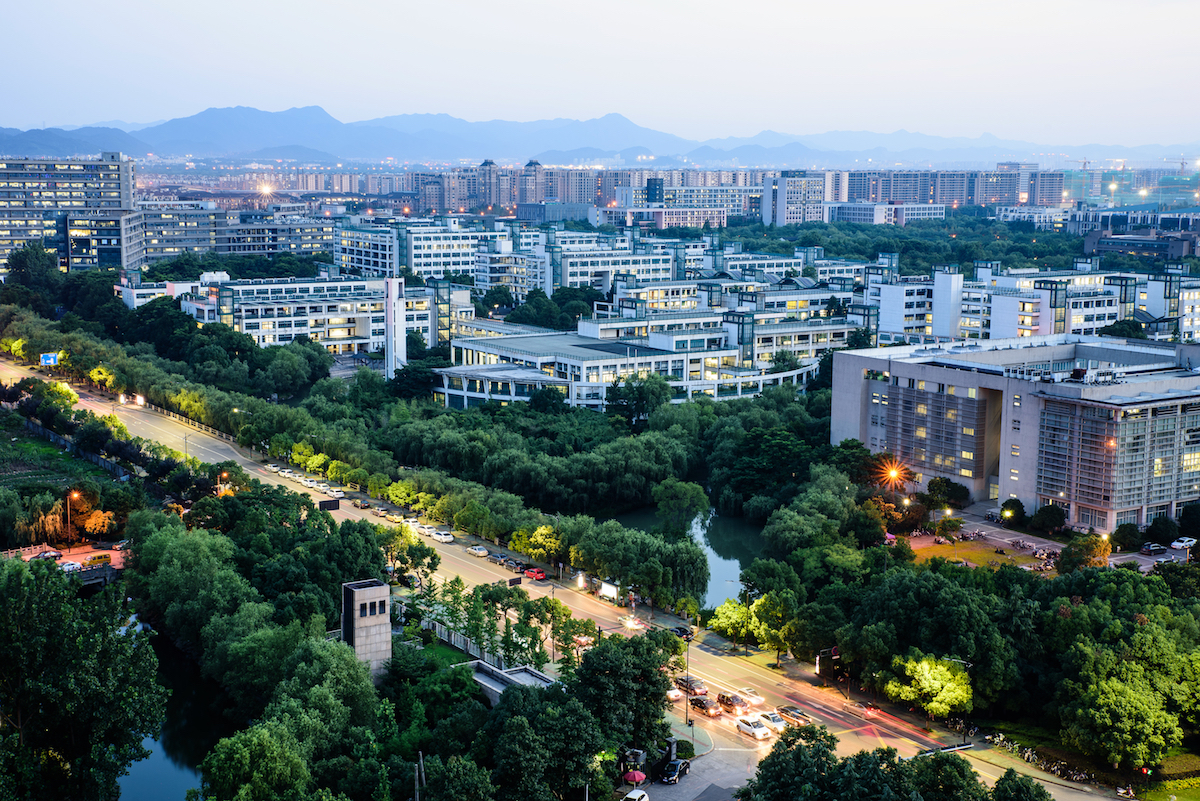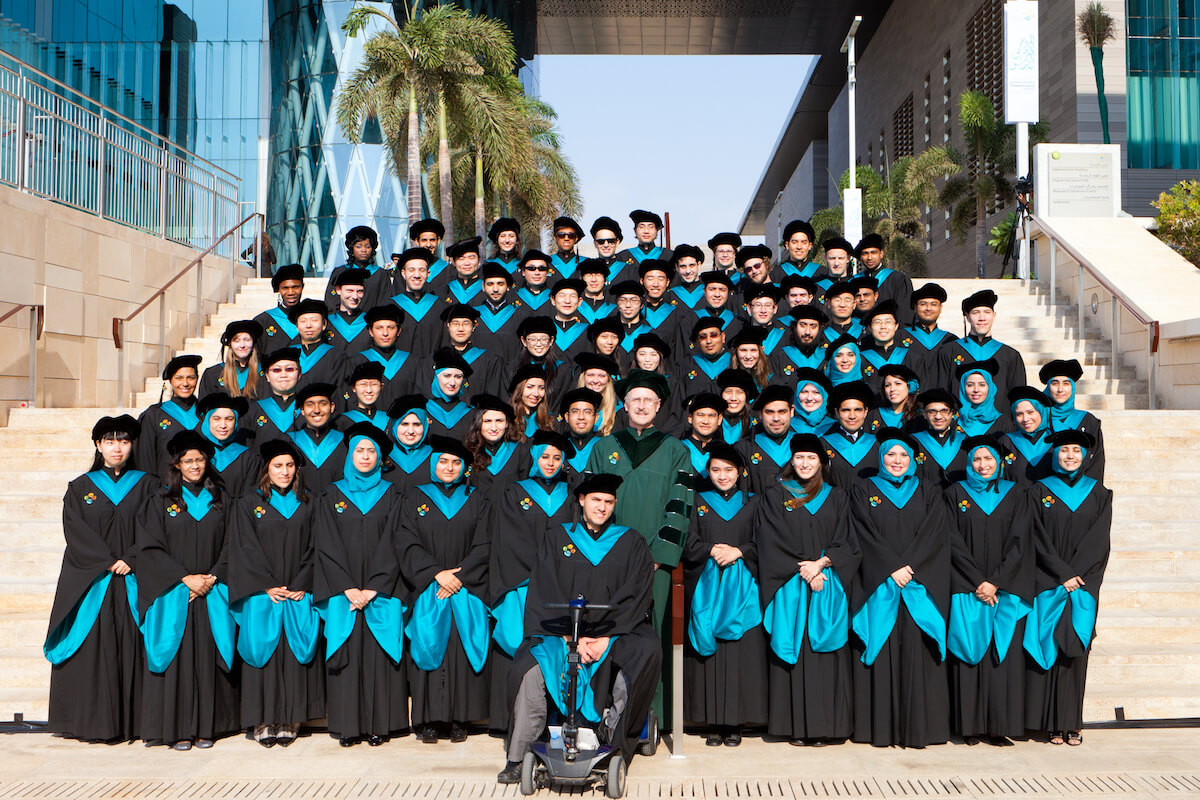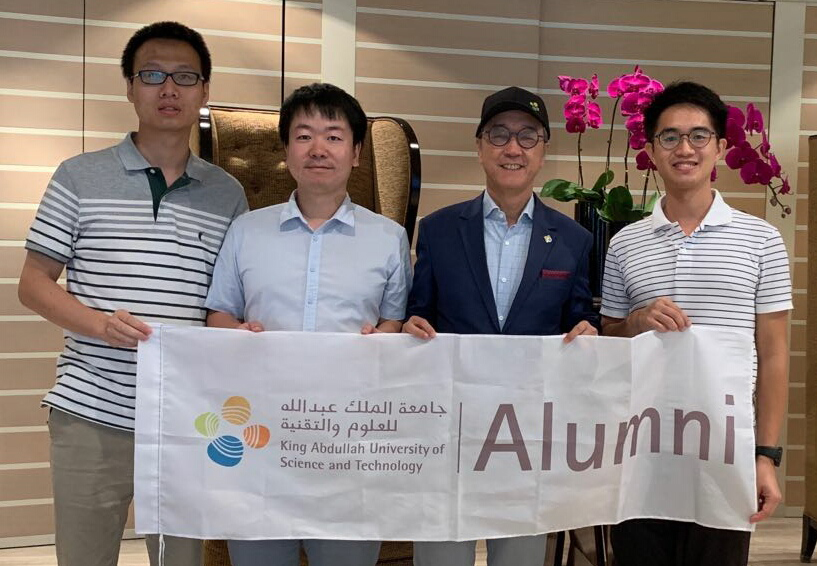Alumni Focus: Jian Pan

KAUST alumnus Jian Pan (M.S. '11) was a member of the University's founding class and received his master's degree in environmental science and engineering. Photo courtesy of Jian Pan.
By Tanya Petersen, KAUST News
When he was young, KAUST alumnus Jian Pan decided to devote himself to creating a better environment. This led him to KAUST, where he completed his master's degree in environmental science and engineering in 2011 as a member of the University's founding class.
After graduating from KAUST, Pan first worked at King Abdullah Petroleum Studies and Research Center in Riyadh as a senior research analyst, examining, for example, Chinese energy consumption and policies. He then returned to his native China in 2014, where he worked as vice director of the Environmental Technology Innovation Center of Jiande (ETICJ) in 2015. He then became general manager of Hangzhou Bertzer Catalyst, a water/wastewater treatment and pollution control technology company, where he currently works.

Alumnus Jian Pan worked at the Environmental Technology Innovation Center of Jiande, China, which is based at Zhejiang University (pictured here), where he completed his undergraduate degree. Image courtesy of Shutterstock.
"We...developed 12 technologies or products, including catalysts for advanced wastewater treatment, biological agents for environmental engineering, a portable water guarantee system for both military and civilian use...a smart IT system and so on. However, the platform goes well beyond technologies alone," Pan explained.
"We have introduced around 30 technologies from other provinces in China and abroad, and [we] have established 17 companies based on those technologies, with a total registered capital of more than RMB 200 million—almost $30 million—and our community is still growing," he continued. "Team members have backgrounds [from] the United States, Canada, Ireland, Japan, the Netherlands and Saudi Arabia. We are open and very happy to collaborate with experts or companies or centers around the world."

In 2011, KAUST alumnus Jian Pan received his master's degree from the University's Biological and Environmental Science and Engineering (BESE) division. Pictured here are class of 2011 master's degree BESE graduates. Photo by Helmy Alsagaff.
Protecting the environment
Pan began his environmental studies with a focus on water and wastewater treatment technologies, including research on anaerobic membrane reactors for micro-polluted water treatment. He also examined an innovative hybrid process called an anaerobic membrane bioreactor with nanofiltration, with guidance from KAUST Emeritus Professor Gary Amy and KAUST research scientist Dr. Chunhai Wei. However, in 2014, the pursuit of his dream began in earnest.
"In 2014, Professor Guan Baohong, my undergraduate advisor, offered me the opportunity to start building an innovation center for technology incubation. I accepted the offer and shifted my research focus from anaerobic membrane bioreactors to catalytic oxidation processes for advanced water/wastewater treatment," Pan said.
"The research work is closely related with industrialization, so it provides solid research results for optimizing catalyst manufacturing processes and advanced treatment procedures. Three sub-projects have been funded by governments, indicating their good applicability and the reliability of the technology, and [this] has really upscaled the impact of my work," he noted.
Staying connected to KAUST
Pan is still closely involved with KAUST as the Chapter President of the KAUST China Alumni Chapter, and he works with the Chapter team to provide a platform for Chinese alumni and KAUST. His dream is to build the capacity of the Chapter to not only allow meaningful interactions among former students but also to become a reliable bridge for KAUST to engage with government entities, institutes, companies and other organizations in China.
Last year, Pan helped to organize an alumni reunion in China with support from KAUST Alumni Affairs. In late June 2019, Pan and the rest of the China Alumni Chapter met with KAUST President Tony Chan in Beijing to discuss their plans and proposed future activities.

In June, KAUST alumnus Jian Pan (second from left) met with KAUST President Tony Chan (second from right) and other members of the University's China Alumni Chapter in Beijing. File photo.
For his future, Pan would like to stay close to Hangzhou, where he can modify and expand his research work and continue following his dreams.
"My current work is mainly on wastewater treatment for industries, helping them [to] have cleaner effluent to protect our natural water bodies and [the] environment," he noted. "[In addition], our catalyst for tap water treatment and air purification will be industrialized soon to provide better-quality drinking water and air in the near future."

